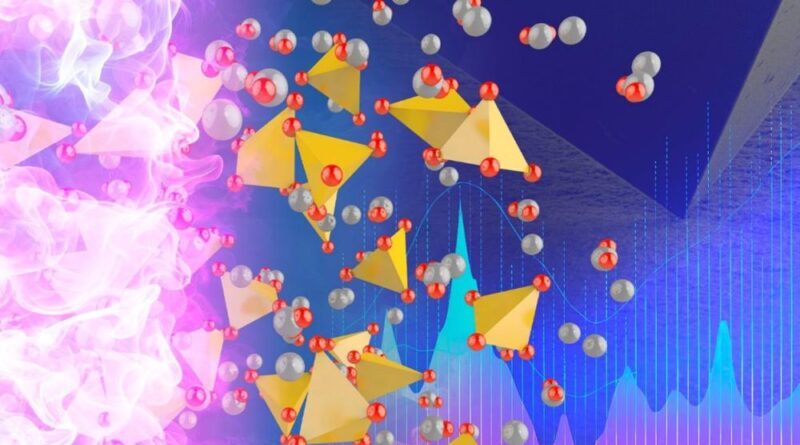Materials Science Breakthrough: Fused Molecules Are Building Blocks For Safer Lithium-Ion Batteries
Improved Safety Profiles
Lithium-ion batteries have revolutionized portable electronics, but their lack of safety features has remained a significant concern. Intense research is underway to develop safer and more environmentally friendly alternatives. A pioneering study has now discovered the potential of fused molecules to create more reliable and hazardous-free lithium-ion batteries, paving the way for wider adoption in the industry.
Fused Molecule Structure
The innovative finding revolves around the creation of fused molecules, which connect multiple rings to form robust and stable structures. When used as cathode active materials in lithium-ion batteries, these fused molecules effectively reduce the risk of violent thermal runaway and subsequent risks of fire and explosion, commonly associated with traditional chemistries.
Diverse Applications
The newfound technology offers immense potential beyond lithium-ion batteries. Envisioned applications include next-generation electric vehicles, implantable medical devices, energy storage systems, and numerous other applications that rely heavily on safe and reliable portable power sources.
Superior Performance
Initial tests highlight the remarkable benefits of fusion reactions as follows:
- Improved thermal stability: Substantially enhanced thermal degradation point, significantly reducing the incidence of thermal runaway.
- Enhanced cycle durability: Extended battery lifespan enabled by reduced side reactions during charge/discharge cycles, resulting in fewer capacity and performance losses.
- Increased energy density: Ability to store more energy and power within the same-volume battery, supporting the shift towards smaller, more streamlined designs.
PathForward
This breakthrough has generated significant interest in the Materials Science community. Future researchers will focus on refining material synthesis methods, optimizing performances, and integrating these components into existing manufacturing processes for widespread adoption. The rapid development of more reliable batteries will contribute significantly to various industries, enabling the construction of safer and more cost-effective infrastructure.
The Future of Battery Technology: Safer and More Capable
By harnessing the potential of fused molecule technology, researchers have propelled the battery industry toward transformative advancements. With continued innovational efforts, the transition to safer and more energetic-power storage solutions appears imminent.
FAQs
How do fused molecules improve the stability of lithium-ion batteries?
Fused molecules decrease the likelihood of thermal degradation by forming a more substantial and robust framework, lowering reactivity and side reactions with electrolytes.
Is fused molecule technology scalable for manufacturing?
Initial studies reveal promising results in laboratory trials. Researchers will focus on refining material synthesis methods for large-scale production and assessing compatibility with existing manufacturing pipelines.
When can consumers expect to see these newer, safer battery technologies deployed?
Widespread adoption of fused molecule materials is anticipated in the relatively near future, as their development and integration into market-ready products continues to mature.


_2.png?w=150&resize=150,150&ssl=1)
_1.png?w=150&resize=150,150&ssl=1)

_1.png?w=150&resize=150,150&ssl=1)
_1.png?w=150&resize=150,150&ssl=1)
